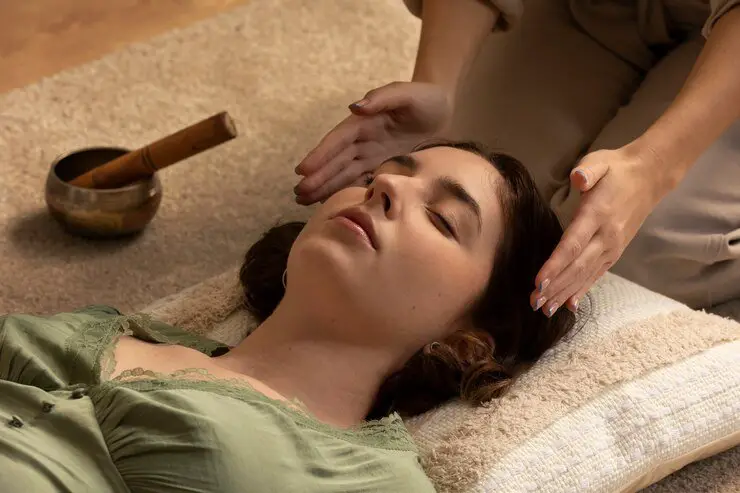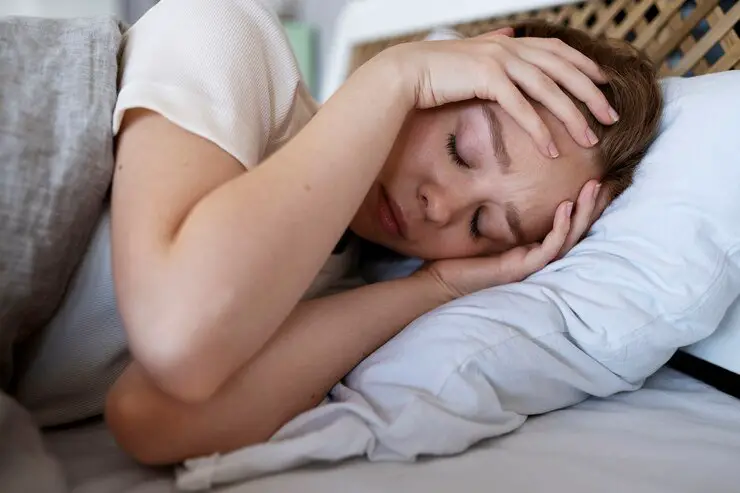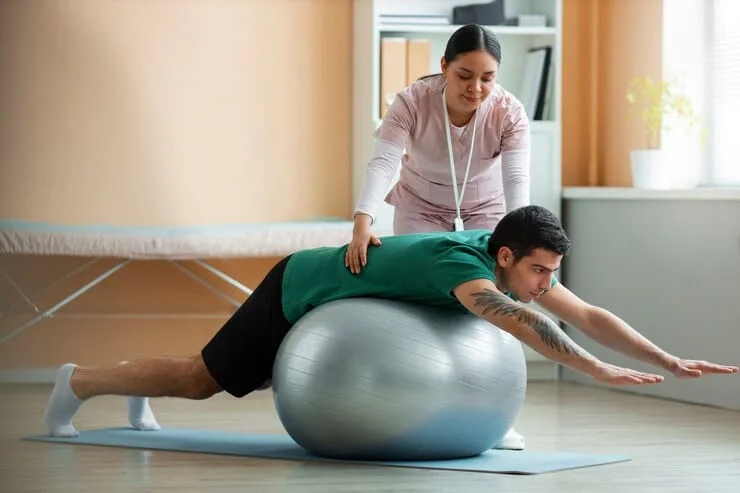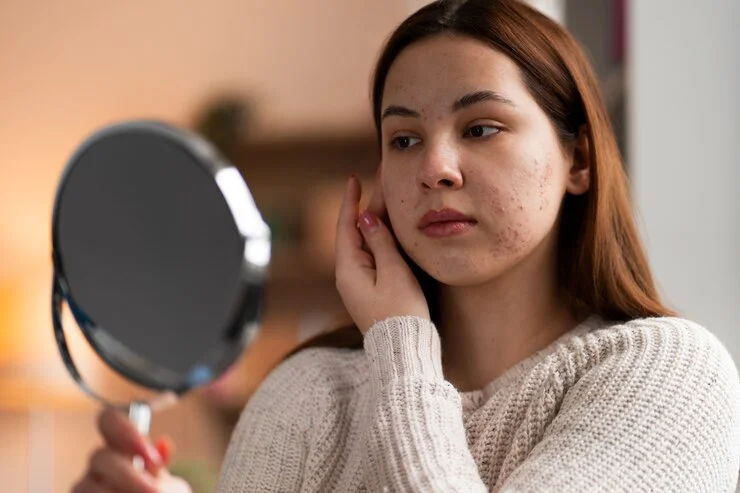Natural Care Anxiety Relief: Effective Strategies to Find Peace
Introduction
In an era where mental health is increasingly recognized as a crucial aspect of overall well-being, the quest for effective Natural Care Anxiety Relief methods has never been more relevant. Anxiety, a pervasive and often debilitating condition, affects a significant portion of the population, prompting individuals and healthcare professionals to seek out both traditional and alternative remedies. This blog delves into the realm of natural care for anxiety relief, offering a beacon of hope and practical strategies for those grappling with this challenging mental health issue.
In the following sections, we will explore a variety of natural approaches, each backed by research and real-world application. From dietary adjustments specifically catered to mitigate anxiety symptoms to exercise routines that serve as a powerful antidote to stress, the blog aims to provide comprehensive insights into how lifestyle changes can significantly impact mental health. Additionally, we will delve into the world of mindfulness, a practice that has gained immense popularity for its effectiveness in calming the mind and reducing anxiety symptoms.
Moreover, the blog addresses the need for immediate relief strategies – those quick, accessible techniques that can be employed during moments of heightened anxiety. Equally important is the exploration of sleep’s impact on anxiety, highlighting how quality rest can be both a preventative and healing measure. We will also provide a detailed overview of various anxiety relief techniques, offering readers a toolkit of methods to experiment with and adopt into their daily lives.
By the end of this journey, our goal is to arm you, whether you’re a patient, a caregiver, or simply someone interested in mental health, with a deeper understanding and practical tools for natural care anxiety relief. Embracing these strategies can pave the way to a more peaceful and anxiety-free life.

Understanding Anxiety
The Invisible Battle: Recognizing and Understanding Anxiety
Anxiety, often described as an invisible battle, is a common mental health condition that affects millions worldwide. It manifests in various forms, ranging from generalized anxiety disorder (GAD) to specific phobias, panic attacks, and social anxiety disorder. Understanding anxiety is the first step towards effective management and relief.
What is Anxiety?
At its core, anxiety is a natural response to stress, characterized by feelings of fear, apprehension, and nervousness. It’s the body’s way of preparing to face a challenging situation with increased alertness, focus, and energy. However, when these feelings become overwhelming, persistent, and disproportionate to the actual danger or stressor, they can impede daily functioning and quality of life.
Symptoms and Impact
Symptoms of anxiety can vary but commonly include excessive worrying, restlessness, fatigue, difficulty concentrating, irritability, sleep disturbances, and physical symptoms like headaches or stomachaches. The impact of anxiety goes beyond these symptoms, affecting relationships, job performance, and overall health.
Prevalence of Anxiety
Anxiety disorders are among the most prevalent mental health conditions globally. According to data, a significant percentage of the population will experience some form of anxiety disorder during their lifetime. This prevalence underscores the necessity for accessible and effective relief strategies.
As we venture into the realm of natural care for anxiety relief, it is crucial to remember that these methods are not one-size-fits-all. What works for one individual may not work for another, and sometimes a combination of approaches, including professional medical advice, is necessary for effective management.
In the upcoming sections, we’ll explore various natural strategies to combat anxiety, starting with how dietary choices can play a pivotal role in managing this condition.

Diet for Anxiety
Nourishing the Mind: The Role of Diet in Anxiety Management
The connection between diet and mental health is a topic of growing interest and research. What we eat not only affects our physical health but also our mental well-being, including the management of anxiety. This section explores how certain dietary choices can be powerful tools in mitigating anxiety symptoms.
Understanding the Gut-Brain Axis
The gut-brain axis is a communication network linking the gastrointestinal tract and the brain. Research has shown that a healthy gut microbiome can positively impact mental health, including reducing anxiety symptoms. Probiotics, found in fermented foods like yogurt, kefir, and sauerkraut, can help in maintaining a healthy gut flora, thus potentially alleviating anxiety.
Foods that Help Reduce Anxiety
- Omega-3 Fatty Acids: Found in fish like salmon and sardines, omega-3s are known for their anti-inflammatory properties and potential to reduce anxiety.
- Magnesium-Rich Foods: Green leafy vegetables, legumes, nuts, and seeds are high in magnesium, a mineral that plays a crucial role in anxiety management.
- Antioxidant-Rich Foods: Berries, nuts, and vegetables are packed with antioxidants, which can help combat oxidative stress linked to anxiety.
- Complex Carbohydrates: Foods like whole grains release glucose slowly, helping maintain a steady blood sugar level, which is important for mood stabilization.
Foods to Avoid
Just as some foods can help reduce anxiety, others can exacerbate it. High sugar intake, excessive caffeine, and alcohol can increase anxiety symptoms and should be consumed in moderation.
Practical Dietary Tips
- Balanced Meals: Aim for a balanced diet rich in fruits, vegetables, whole grains, lean protein, and healthy fats.
- Mindful Eating: Pay attention to how certain foods affect your mood and anxiety levels.
- Hydration: Adequate water intake is essential for overall health and can influence mood and anxiety.
Incorporating these dietary changes can be a valuable part of a comprehensive approach to managing anxiety. Up next, we will delve into the role of exercise in anxiety relief.

Exercise for Anxiety
Moving Towards Calmness: The Impact of Exercise on Anxiety
Regular physical activity is not only beneficial for physical health but also plays a significant role in mental well-being. Engaging in exercise can be a highly effective strategy for managing and reducing anxiety symptoms. This section will explore how incorporating exercise routines can contribute to natural anxiety relief.
The Science Behind Exercise and Anxiety Relief
When we exercise, our body releases endorphins, chemicals in the brain that act as natural painkillers and mood elevators. These endorphins play a key role in reducing stress and improving mood, thereby helping in anxiety management. Additionally, exercise can lower the body’s stress hormones, such as cortisol, over time.
Effective Exercise Routines for Anxiety
- Aerobic Exercises: Activities like walking, running, swimming, or cycling can significantly reduce anxiety levels. Aerobic exercise has been shown to decrease overall levels of tension, elevate and stabilize mood, and improve sleep.
- Yoga: Combining physical postures, breathing exercises, and meditation, yoga is particularly effective in reducing anxiety and stress.
- Strength Training: Engaging in moderate weight lifting or resistance training can improve anxiety symptoms, offering a sense of accomplishment and increased physical strength.
- Mind-Body Exercises: Tai chi and Pilates, which focus on body awareness and mindfulness, can also be beneficial.
Tips for Incorporating Exercise into Your Routine
- Consistency Over Intensity: Regular, moderate exercise is more beneficial for anxiety relief than intense, sporadic workouts.
- Find Enjoyable Activities: Choose activities that you enjoy and look forward to doing.
- Set Realistic Goals: Start with manageable goals and gradually increase the intensity and duration of your workouts.
- Mindfulness During Exercise: Focus on your body and the sensations of movement, which can enhance the stress-relieving benefits of exercise.
Incorporating exercise into your daily routine can be a powerful natural remedy for anxiety relief. As we continue our journey, the next section will focus on the role of mindfulness in managing anxiety.

Mindfulness for Anxiety
The Power of Now: Embracing Mindfulness to Combat Anxiety
Mindfulness, the practice of being fully present and engaged in the moment, has gained significant recognition as an effective tool for managing anxiety. By focusing on the here and now, mindfulness practices can provide a respite from the constant stream of worries and fears associated with anxiety. Let’s explore how mindfulness can be a transformative element in natural anxiety relief.
Understanding Mindfulness
Mindfulness involves paying attention to our thoughts, feelings, bodily sensations, and the surrounding environment in a non-judgmental way. It’s about noticing what’s happening within and around us, without being overly reactive or overwhelmed by what’s going on.
Mindfulness Techniques for Anxiety
- Mindful Breathing: This involves focusing on the breath, noticing the inhalation and exhalation, which can help center the mind and reduce anxiety.
- Body Scan Meditation: A process of slowly focusing on different parts of the body and noticing any sensations, tension, or discomfort, promoting relaxation.
- Mindful Observing: This practice involves paying attention to the present moment, whether it’s noticing the sensations of your feet touching the ground or the sounds around you.
The Benefits of Mindfulness for Anxiety
Research has shown that practicing mindfulness can lead to reductions in anxiety symptoms. It helps in breaking the cycle of worry and fear by bringing attention back to the present, reducing the tendency to ruminate on past events or future worries. Mindfulness also enhances emotional regulation and improves resilience against stress.
Integrating Mindfulness into Daily Life
- Start with Short Sessions: Even a few minutes of mindfulness practice daily can be beneficial.
- Use Apps and Online Resources: Many apps offer guided mindfulness exercises tailored for anxiety relief.
- Mindful Daily Activities: Practice mindfulness during routine activities like eating, walking, or showering to cultivate a habit.
Embracing mindfulness can be a profound step towards finding peace in the midst of anxiety. Up next, we will discuss strategies for immediate relief from anxiety.

Immediate Relief from Anxiety
Quick Calm: Strategies for Immediate Anxiety Relief
While long-term strategies are crucial for managing anxiety, having tools for immediate relief during moments of heightened anxiety is equally important. This section will focus on effective and accessible techniques that can provide quick relief from anxiety symptoms.
Breathing Techniques
One of the most immediate ways to reduce anxiety is through controlled breathing, as it triggers the body’s relaxation response.
- Deep Breathing: Slow, deep breaths can help reduce heart rate and promote calmness. Try inhaling for a count of four, holding for a count of seven, and exhaling for a count of eight.
- Box Breathing: Inhale for four counts, hold for four counts, exhale for four counts, and hold again for four counts. This technique can help regulate the nervous system.
Grounding Techniques
Grounding techniques can help distract from anxiety and refocus on the present moment.
- 5-4-3-2-1 Technique: Identify five things you can see, four things you can touch, three things you can hear, two things you can smell, and one thing you can taste.
- Physical Grounding: Holding a cold beverage, touching a piece of fabric, or feeling the texture of an object can help bring your focus back to the present.
Visualization and Positive Affirmations
Creating a mental escape or using positive affirmations can provide temporary relief from anxiety.
- Guided Imagery: Visualize a peaceful scene or memory to divert attention from anxious thoughts.
- Positive Affirmations: Repeating affirmations like “I am calm and in control” can help reframe anxious thoughts.
Quick Physical Activities
Engaging in a brief physical activity can help release built-up tension.
- Stretching: Simple stretching exercises can help relieve muscle tension associated with anxiety.
- Short Walk: A brisk walk, even for a few minutes, can help clear the mind and reduce anxiety symptoms.
These immediate relief strategies can be powerful tools in managing acute anxiety episodes. However, they should complement long-term anxiety management strategies, which include adequate sleep, as we will discuss in the next section.
Sleep and Anxiety
Restful Respite: Understanding the Sleep-Anxiety Connection
Sleep and anxiety have a complex, bidirectional relationship. Poor sleep can exacerbate anxiety symptoms, and anxiety can make it difficult to get a good night’s sleep. This section examines the impact of sleep quality on anxiety levels and offers tips to improve sleep for better anxiety management.
The Impact of Sleep on Anxiety
Lack of quality sleep can increase the body’s stress response, making one more susceptible to anxiety. Conversely, anxiety can lead to sleep disturbances like insomnia, creating a vicious cycle. Research has shown that improving sleep quality can significantly reduce anxiety levels.
Tips for Improving Sleep Quality
- Establish a Regular Sleep Schedule: Going to bed and waking up at the same time each day helps regulate the body’s internal clock.
- Create a Relaxing Bedtime Routine: Engage in calming activities before bed, such as reading or taking a warm bath.
- Optimize Your Sleep Environment: Ensure your bedroom is dark, quiet, and cool. Consider using blackout curtains, earplugs, or a white noise machine if necessary.
- Limit Screen Time Before Bed: Exposure to blue light from screens can disrupt sleep patterns. Try to avoid screens at least an hour before bedtime.
- Mindful Practices: Incorporating mindfulness or relaxation techniques can help calm the mind and prepare for sleep.
- Watch Your Diet: Avoid heavy meals, caffeine, and alcohol close to bedtime, as they can disrupt sleep.
Addressing Sleep Disorders
If anxiety-related sleep disturbances persist, it might be beneficial to seek professional help. Conditions like insomnia and sleep apnea can significantly impact both sleep quality and anxiety levels, and addressing these issues can improve overall mental health.
Adequate and restful sleep is a cornerstone of anxiety management. Next, we will delve into various “Anxiety Relief Techniques,” exploring a range of strategies to manage and reduce anxiety symptoms effectively.

Anxiety Relief Techniques
A Toolkit for Tranquility: Diverse Anxiety Relief Techniques
Managing anxiety often requires a multifaceted approach. Beyond diet, exercise, mindfulness, and adequate sleep, there are various techniques that can be employed to alleviate anxiety symptoms. This section explores a range of anxiety relief techniques, offering a toolkit for individuals seeking natural and effective strategies.
Cognitive Techniques
- Cognitive-Behavioral Therapy (CBT): Although typically conducted with a therapist, the principles of CBT can be applied independently. It involves identifying and challenging negative thought patterns and beliefs that contribute to anxiety.
- Journaling: Writing down thoughts and feelings can help process emotions and reduce anxiety. It provides an opportunity to reflect and identify triggers.
Relaxation Techniques
- Progressive Muscle Relaxation: This involves tensing and then relaxing different muscle groups, which can reduce physical tension and mental anxiety.
- Aromatherapy: Using essential oils like lavender or chamomile can have a calming effect and help in managing anxiety.
Social and Recreational Activities
- Social Support: Engaging in social activities and maintaining supportive relationships can provide a sense of belonging and reduce feelings of anxiety.
- Hobbies and Creative Pursuits: Activities like painting, gardening, or playing a musical instrument can be therapeutic and offer a distraction from anxious thoughts.
Alternative Therapies
- Acupuncture: Some find relief in acupuncture, an ancient Chinese medicine technique that involves inserting needles into specific points of the body to balance energy flow.
- Herbal Supplements: Certain herbs like valerian root, ashwagandha, and passionflower are believed to have calming effects. However, it’s important to consult with a healthcare provider before starting any supplement.
Each individual responds differently to various techniques, so it may take some trial and error to find what works best. Remember, these strategies should complement professional treatment when necessary.
Next, we will conclude our comprehensive guide on natural care anxiety relief with a summary and final thoughts.

Conclusion
Embracing Peace: Final Thoughts on Natural Care for Anxiety Relief
As we conclude this comprehensive guide on natural care for anxiety relief, it’s important to reflect on the key points and strategies discussed. Anxiety, a prevalent mental health challenge, can significantly impact one’s quality of life. However, the array of natural strategies outlined in this blog offers hope and practical solutions for those seeking relief.
Recap of Key Strategies
- Dietary Adjustments: Incorporating foods rich in omega-3 fatty acids, magnesium, and antioxidants while limiting caffeine and sugar can positively impact anxiety levels.
- Exercise: Regular physical activity, including aerobic exercises, yoga, and strength training, can reduce anxiety symptoms.
- Mindfulness Practices: Techniques like mindful breathing, body scans, and mindful observing help ground individuals in the present moment, easing anxiety.
- Immediate Relief Methods: Breathing and grounding techniques, visualization, and physical activities provide quick anxiety relief.
- Sleep Quality: Establishing healthy sleep habits is vital in managing anxiety, as poor sleep can exacerbate anxiety symptoms.
- Diverse Anxiety Relief Techniques: From cognitive and relaxation techniques to social activities and alternative therapies, there are numerous ways to manage anxiety.
Final Thoughts
Remember, the journey to managing anxiety is personal and may require experimenting with different strategies to find what works best for you. It’s also crucial to recognize when professional help is needed. Natural care strategies for anxiety relief can be highly effective, but they are not a substitute for professional medical advice, diagnosis, or treatment.
By embracing these natural care strategies and making them a part of your daily routine, you can take significant steps towards reducing anxiety and improving your overall well-being. May this guide serve as a starting point in your journey towards finding peace and tranquility in your life.
Additional Resources
For further exploration and support in managing anxiety, here are some additional resources:
- Books and Articles: Look for literature that provides deeper insights into anxiety management and natural care strategies.
- Online Communities: Engage with online forums and social media groups focused on anxiety relief and mental health.
- Mental Health Apps: Consider using apps that offer guided meditations, breathing exercises, and other resources for anxiety management.
- Professional Help: If you’re struggling with anxiety, don’t hesitate to seek help from mental health professionals. They can provide personalized advice and treatment plans.
Taking the first step towards managing anxiety can be challenging, but remember, you are not alone in this journey. Embracing natural care strategies can lead to significant improvements in your mental health and overall quality of life.
Frequently Asked Questions (FAQs)
- What are some natural foods that help reduce anxiety?
- Foods rich in omega-3 fatty acids (like salmon and sardines), magnesium (such as leafy greens and nuts), and antioxidants (berries and vegetables) can help in reducing anxiety. It’s also beneficial to include complex carbohydrates and probiotics in your diet.
- Can exercise really help with anxiety, and what types are best?
- Yes, exercise can significantly help with anxiety. Aerobic exercises like walking, running, and swimming are particularly effective. Yoga and mindfulness-based exercises also greatly contribute to anxiety relief. The key is consistency and choosing activities that you enjoy.
- How does mindfulness work in reducing anxiety?
- Mindfulness helps in reducing anxiety by focusing your attention on the present moment and allowing you to become more aware of your thoughts and feelings without judgment. Techniques like mindful breathing, body scans, and mindful observing can interrupt the cycle of anxious thoughts.
- Are there any immediate techniques to calm down during a high anxiety moment?
- Yes, techniques like deep breathing, grounding exercises (like the 5-4-3-2-1 technique), and engaging in a brief physical activity can provide immediate relief. Visualization and positive affirmations are also helpful in such situations.
- When should I seek professional help for my anxiety?
- While natural care strategies can be effective, it’s important to seek professional help if your anxiety is persistent, significantly interferes with your daily life, or if you experience severe symptoms like panic attacks. A healthcare professional can provide a diagnosis and tailored treatment plan.







